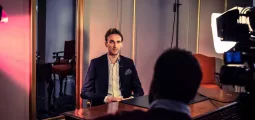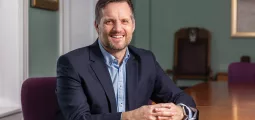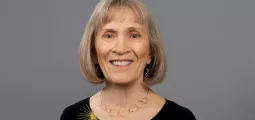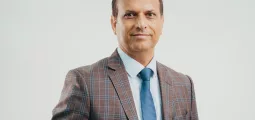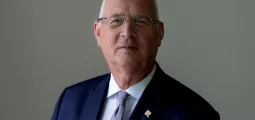Europe’s Original Sin and the Dangers of Doing Good
 Carlos Rangel, the Venezuelan diplomat and essayist, once pointedly remarked that western nations often send their failed politicians – the dreamers, utopians, and other ineffectual romantics – to far-off places where they can do no harm other than to their host countries. Mr Rangel (1929-1988) deplored the lack of pragmatism and structure in development aid and considered the untold billions of dollars spent on haphazard attempts at eradicating poverty in Africa, Latin America, and elsewhere largely a waste of resources. He argued that as long as policies are set and implemented out of pity, a heavy conscience, or an irrepressible urge to “do good,” they are doomed for failure.
Carlos Rangel, the Venezuelan diplomat and essayist, once pointedly remarked that western nations often send their failed politicians – the dreamers, utopians, and other ineffectual romantics – to far-off places where they can do no harm other than to their host countries. Mr Rangel (1929-1988) deplored the lack of pragmatism and structure in development aid and considered the untold billions of dollars spent on haphazard attempts at eradicating poverty in Africa, Latin America, and elsewhere largely a waste of resources. He argued that as long as policies are set and implemented out of pity, a heavy conscience, or an irrepressible urge to “do good,” they are doomed for failure.
Mr Rangel, a close friend of French philosopher Jean-François Revel, was ahead of his time. In his widely-praised book From Noble Savage to Good Revolutionary (1976), he posited rather convincingly that many of the damaging social experiments carried out in the post-colonial developing world had mostly originated in the fertile minds of those European politicians whose impractical ideas had failed to gain traction on the home front. These, then, were let go to peddle their designs at international organisations and in struggling countries of little consequence. Former Dutch Minister for Development Cooperation Jan Pronk comes to mind. Never more than an inconvenient footnote on the domestic scene, he was soon dispatched overseas to become an icon of the guilt-ridden left and the personification of the embarrassment of riches. Though Mr Pronk did not accomplish much, he did make the right noises at the right times and was duly rewarded with a long career – far from Dutch shores.
Today, ideology and its attendant lusting after the perfect society have all but disappeared from political discourse. Even pressing issues such as climate change are now generally considered economic opportunities that can and must produce revenue streams for agile businesses that can see and decipher the writing on the wall.
“Africa is at long last finding its groove not because of, but in spite of development aid.”
Whenever someone suggests we should do “the right thing” for no other reason than to “do good” regardless of profit, people take note and may even be overcome by nostalgia. Such was the case when in September the German magazine Der Spiegel – not normally a redoubt of wishful thinking – published an essay by Jürgen Dahlkamp on the murderous harshness of Europe’s asylum policy.
The fearless Mr Dahlkamp actually suggests Europeans refrain from consuming wine and strawberry cakes, and stop buying Volkswagen Golfs as well, in order to send the monies thus saved to poor people in Africa. He argues that nobody actually needs these things in order to survive. “It is our wine, cakes, and Golfs against their lives,” writes Mr Dahlkamp referring to the hundreds of desperately poor people who drown in the Mediterranean while trying to reach the safety of Europe.
Mr Dahlkamp goes on to call Europe’s penchant for luxury living its “original sin” and declares innocence lost as the first drop of wine passes the lips of a yet unsuspecting young European. This marks the point at which, in Mr Dahlkamp’s view, prosperity replaces survival as life’s leitmotif.
The fact that the writer of this angst-ridden drivel is dead-serious causes some worry. So too does the fact that an otherwise stoically serious publication like Der Spiegel decided to print it.
Though few would dispute the graveness of the human tragedy taking place in the Mediterranean, suggesting Europe is to blame for the deaths of hundreds or even thousands of asylum seekers at the hands of ruthless human traffickers, borders on the insane.
The suggestion, reminiscent of Mr Pronk’s most noteworthy speeches, that Europeans should moderate their consumption of non-essential goods and services in order to help those in dire need, is a classic recipe for disaster of unmitigated proportions. Once Europeans move back to the caves from whence they emerged a few millennia ago, the balance will be restored and all will be well.
There are a great many reasons that explain the tidal wave of humanity that sweeps the Mediterranean. However, Europe’s “original sin” is not one of them. If European countries must share the blame, it could as well be for paying lip service to cruel, criminal, ineffectual, and/or corrupt leaders who ruled their countries as personal fiefdoms and ruined them in the process.
Coincidence or not, but as development aid budgets were slashed, many African nations started to bloom. China is not big on aid, but does deliver trading and investment opportunities to Africans as no other country ever has. Most European nations now bestow their largess exclusively on countries that adhere to principles of good governance. Mishaps do still occur such as the EUR500m of Dutch development aid dumped on South Sudan where it promptly disappeared without much of a trace.
Africa is at long last finding its groove not because of, but in spite of development aid. Instead of consuming less and thus adding to their already formidable economic woes, Europeans may want to consider embarking on a spending spree: The additional demand for goods and services couldn’t fail to bolster trade with Africa.
For all their “progressive” talk, the Pronks and Dahlkamps of this world have never quite given up on Europe’s colonial legacy. They cannot help but see Africans as needy people unable to fend for themselves, thus requiring a guiding hand. This is not only offensive to an entire continent; it is pure nonsense.
As this issue of CFI.co has shown, Africa now stands at the threshold of a renaissance. Though far from perfect yet and still suffering a great many ills, the continent is definitely on the move and heading in the right direction. The pace is picking up as well and as it does migratory pressures will subside.
You may have an interest in also reading…
Nigerian Stock Exchange: Corporate Governance to Reign Supreme
The buoyant Nigerian Stock Exchange (NSE), with well over two hundred listed securities representing a total market capitalisation in excess
EDFI: Africa and Energy Access – Financing Impact
Energy is arguably one of the major challenges the world faces today. For those living in extreme poverty, the lack
Nordea Asset Management: Uniting Investors to Confront Rising Menace of Methane
By Eric Pedersen, Head of Responsible Investments at Nordea Asset Management If the world has any chance of slowing the
























